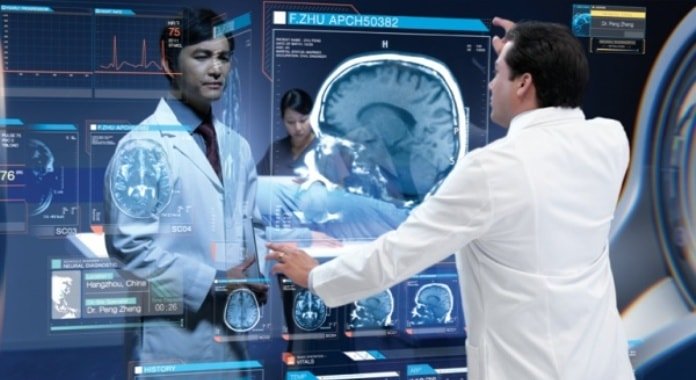These technological advancements present an opportunity to significantly improve patient care and treatment outcomes in a healthcare system that is in a constant state of evolution. Utilizing these technologies will ensure that healthcare is not only more effective but also more efficient, thereby relieving the strain on global healthcare technology jobs systems.
Cutting-Edge Treatment Approaches:
The adoption of innovative technologies such as CRISPR-Cas9 and AI in healthcare technology companies heralds the development of novel treatment trajectories. Researchers now possess advanced technologies for designing innovative treatments that are meticulously tailored to the requirements of each patient. This trend appears brightest in cancer treatment, where individualized therapies are significantly improving patient outcomes.
The Role of Precision Medicine in Global Health Challenges:
In addition, precision medicine and its associated technologies are poised to address some of the world’s most pressing health issues. Precision medicine is a dependable ally in the ongoing war against emergent and recurrent infectious diseases. It can aid in rapidly identifying the genomic sequences of novel pathogens, enabling the development of vaccines and therapeutics to occur more quickly and efficiently. In addition, healthcare technology solutions is precision medicine can contribute to the crafting of more precise antimicrobial agents in the struggle against antibiotic resistance, thereby preserving the efficacy of existing antibiotics.
Assurance of Ethical Application:
However, the ethical implications of these technologies, particularly in genomics and data collection, should be thoroughly considered alongside their numerous benefits and potentials. The use of genetic information on patients, continuous healthcare technology trends monitoring, and data analytics must adhere to stringent privacy and security standards. Achieving a balance between technological advancement and ethical concerns is essential for ensuring the trust and safety of patients. Organizations and institutions need to collaborate to establish solid ethical guidelines for the development and application of these emergent technologies.
Bridging the Digital Divide:
Access to the benefits of precision medicine should be equally available to all people. There is currently a substantial digital divide, with marginalized communities frequently lacking access to advanced healthcare technologies. To ensure the pervasive impact of precision medicine, efforts should be focused on bridging this chasm, ensuring that all individuals have access to these advancements’ benefits.
Policy and Regulation’s Role in Healthcare:
In this global expedition, policies and regulations serve as steadfast pillars, supporting the structure of an ethically sound and integrated healthcare system. Crafting and fortifying these pillars ensures the seamless incorporation of emerging technologies into the new healthcare technology infrastructure, ensuring that the advancements in healthcare technology rest on a foundation of safety, efficacy, and ethical rigor. Collaboration between governments, regulatory entities, and the life sciences and bio-industry is essential for navigating the regulatory landscape and ensuring that the benefits of these technologies are realized across the continuum of healthcare.
Adopting Innovative Technologies:
Emerging technologies such as blockchain and augmented reality (AR) will further improve the personalization and efficiency of healthcare in the continually evolving field of precision medicine. Blockchain technology offers a transparent and secure platform for the administration and exchange of healthcare data. Patients can have greater access to and control over their health information, ensuring data integrity and fostering confidence in health data management. Improving the coordination and efficiency of care, healthcare providers can instantly and securely access patient data.
AR can transform medical training, patient education, and treatment planning, however. During consultations and surgical procedures, it can provide medical professionals with real-time data and patient information, augmenting their decision-making ability. AR can also aid in patient education by providing visually interactive and comprehensive information regarding medical conditions, treatments, and procedures. These advancements are significant steps towards optimizing personalized healthcare, ensuring not only the efficacy but also the security, efficiency, and equality of healthcare services.
In Conclusion:
The future of healthcare rests in utilizing the transformative capabilities of genomics, data analytics, and eTMF systems in precision medicine, which are on the cusp of this new, digital era. This revolutionary advances in healthcare technology has the potential to revolutionize patient care, improve treatment outcomes, and address global health challenges. As the voyage towards a more personalized and efficient healthcare system continues, the roles of ethical considerations, equitable access, and robust policy and regulation remain of paramount importance. The promise of a healthier, more efficient, and more equitable healthcare system is within reach, offering individuals and communities worldwide a sunnier and more hopeful future.



